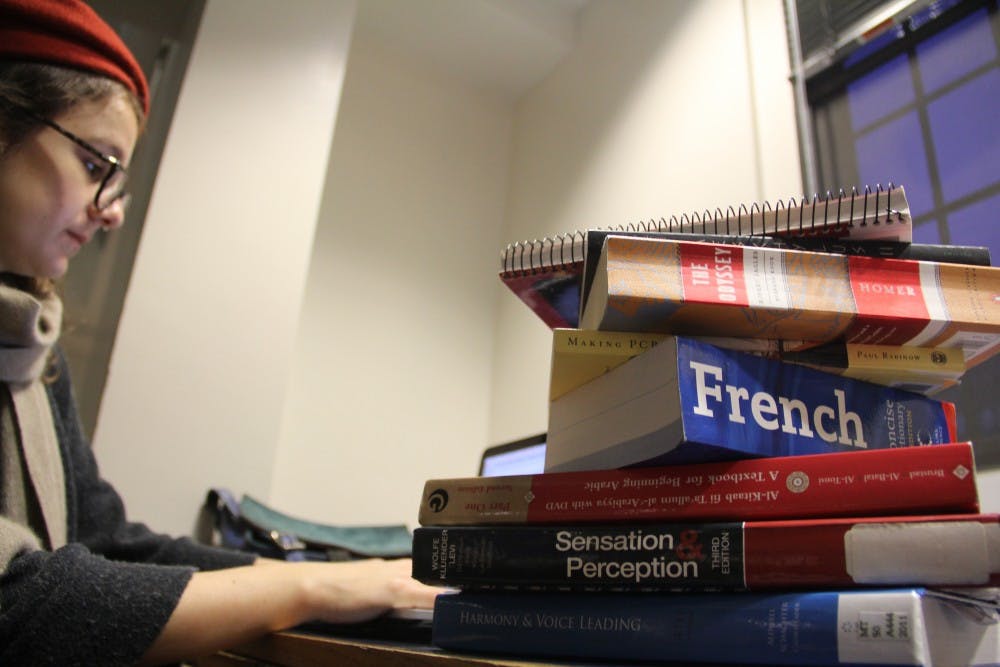
The existence of such smaller, niche majors allows students to craft an academic identity distinct from overarching classifiers, offering more individualization.
Credit: Morgan ReesThough ten thousand undergraduates flood Penn’s campus, some students find a niche within their choice of major.
“In a perfect world you want majors that are not so big that all students are semi-anonymous because you can’t get to know them that well, and you don’t want them so small that there’s not a sort of intellectual critical mass,” said Ralph Rosen, the undergraduate chair of the Classical Studies Department.
The existence of smaller, niche majors — classical studies as independent rather than just a branch of history, comparative literature as distinct from English, etc. — allows students to craft an academic identity distinct from overarching classifiers like “history” or “anthropology.”
Individualization seems to characterize many such small majors. “We are just about the most flexible major you could possibly imagine,” said Justin McDaniel, undergraduate chair of the Religious Studies Department. The major has no set courses. Rather, students meet with McDaniel to discuss their interests and set out an individualized plan of study.
Both classical studies and religious studies require 12 credits for the major, the minimum for any major in the College of Arts and Sciences. This reduced requirement seems meant not only to encourage students toward the major but also to encourage interdisciplinary study.
Both Rosen and McDaniel, as well as comparative literature Undergraduate Director Rita Barnard, said that many students in their programs choose to double major. While some students major in similar fields — a religious studies major might choose to double major in Near Eastern languages and civilizations and study Judaism, or a comparative literature major might double major in French or Russian literature — other students take very different tracks, double majoring in fields as disparate as classics and biochemistry.
“This is not the major you bring home to Mom and Dad,” McDaniel said. “Like, ‘Mom, I’m going to Penn to study religion!’ It’s usually economics, or history, or political science — these big, well-known majors.”
But many Wharton or Engineering students, or students with more business or science-oriented majors in the College, choose to double major in smaller humanities departments — using the chance to study an intellectual history they’ve always loved.
Sheila Shankar, a College senior and double major in gender, sexuality and women’s studies and the biological basis of behavior, said that the GSWS major gave her a way to explore her interests in social justice and the humanities in addition to her scientific interests. She also spoke warmly about the close-knit community the program provided.
“We have a lot of personalized, individual attention from faculty members, and you get to know your classmates really well — there’s definitely a sense of community and belonging,” Shankar said.
The Daily Pennsylvanian is an independent, student-run newspaper. Please consider making a donation to support the coverage that shapes the University. Your generosity ensures a future of strong journalism at Penn.
DonatePlease note All comments are eligible for publication in The Daily Pennsylvanian.





